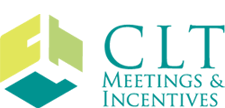Deal-making deluxe: First, meeting planners do negotiation homework
Negotiating skills.
The very words can strike fear in the bravest of men. Thankfully, event and meeting planners negotiate all the time — it’s a big part of the job. Part psychology, part business know-how, part creativity … negotiating is a craft that, like a fine wine, grows better with time. Here are some ways professional event planners get ready to do battle at the negotiating table, representing your best interests:
Our list of “wants” is expansive. But this is to allow us flexibility as offers go back and forth — from venue to planner, to planner to venue, to audio-visual vendors to planner, to planner from food and beverage vendors — you get the picture. We make a list of the very-important items we need in a deal, and never squabble over smaller details that aren’t necessities in our view, to keep negotiations on a solid track. The power, we believe, is in knowing what you need most and being willing to concede on others. Some “back-pocket concessions” can go a long way in making for a positive result.
We understand the structure of negotiation. The goal is not to “win” and gain upper ground over the other side, but to come to a middle ground. We give our expectations careful, careful thought before we enter the negotiating table. Pride has to be put aside. If both sides in a deal are coming in with a bombastic sense of entitlement, no work will get accomplished.
We realize it’s all in the presentation. Just like general session speakers, it’s all in how we present ourselves in negotiations. We ask for what we want in a respectful and professional manner — even if the other side doesn’t. It can be challenging when it appears negotiations are making us angry, but that anger detracts from logical, strategic thinking. Professional meeting planners know this well, and work to remain focused.
We get in the [reality] zone. Negotiating wants of a planner may not match those of the vendor, venue or speaker. That’s just a fact. If a meeting planner were to get too greedy in asking for certain concessions, it could be a deal breaker. Prepared planners establish ZOPA and BATNA. ZOPA is a Zone of Possible Agreement — your minimum range and the other party’s maximum range. BATNA is the Best Alternative to a Negotiated Agreement — a threshold which any acceptable deal must exceed. These concepts keep realistic negotiations flowing.
When hiring a meeting planner, don’t be afraid to ask their viewpoints or success stories in negotiating. Their handle on this business essential gets you, the client, more for your money.



Leave a Reply
Want to join the discussion?Feel free to contribute!